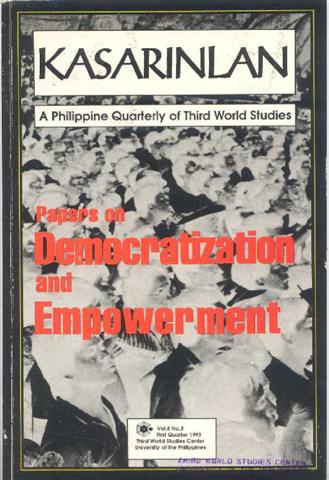Theory and Reality of Democracy and Thai Democratization
Abstract
The first part of this paper offers a theoretical and conceptual discussion on what kind of framework is the most convenient to use in the debate on the role of the state in a developmental perspective and how to fit this debate within the 'functionalist terms' of democracy and democratization. An alternative approach is suggested with emphasis on political factors and a non-functionalist approach. The second part is a preliminary empirical analysis concerning the role of the state in Thailand and its relationship with the question of democracy and democratization at the regime and civil society levels, as well as its linkage with the external context. It suggests that a historical perspective is necessary in understanding how Thailand has been able to sustain high economic growth and simultaneously be labeled as Asia's Bolivia, because of the frequency of military coups d'etat on the one hand, and a stable political environment on the other. The third part provides a brief comparative perspective on the events that transpired between 1973-1976 - the period when popular forces toppled an authoritarian regime - and the latest events in 1992 where the Suchinda junta was forced to resign. Finally, some tentative perspectives on state and democracy in the Thai context is given.
Published
2008-06-16
Section
Features
By submitting a manuscript, the authors agree that the exclusive rights to reproduce and distribute the article have been given to the Third World Studies Center.



